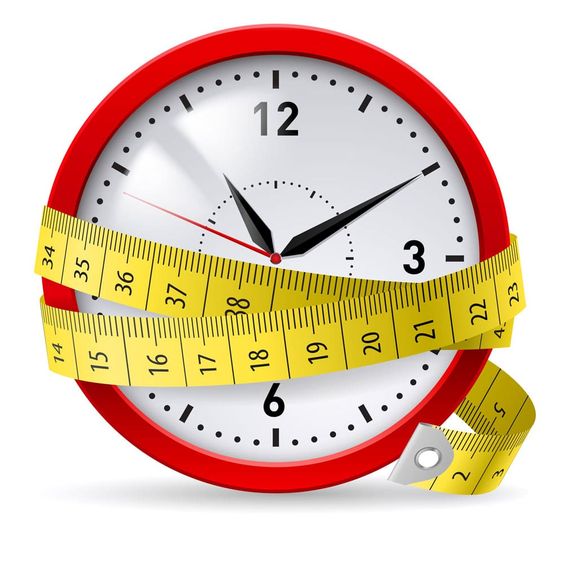How Your Body Uses Calories While You Sleep – Have you ever wondered what happens to your body while you sleep? Does it just shut down, or does it continue to use energy? The answer may surprise you.
Calories are the units of energy that our bodies use as fuel. We all know that physical activity burns calories, but did you know that our bodies continue to burn calories even when we’re at rest?
Sleep is a necessary component for good health, and it turns out that it can even contribute to weight loss! Understanding how your body uses calories while you sleep can help you make better choices in your daily routine. In this article, we’ll explore the ways in which your body uses calories during sleep and how it can impact your overall health and wellness.
Key Takeaways
- Sleep is a necessary component of good health and contributes to weight loss.
- During sleep, the body uses energy to breathe, circulate blood, repair tissues, and build muscle.
- Understanding your basal metabolic rate can be useful in creating a personalized plan for weight management and improving overall health.
Explanation of how the body uses calories while sleeping
While you sleep, your body continues to burn calories in order to keep your vital organs functioning properly. This process is known as resting metabolic rate (RMR).
During sleep, your body uses energy to breathe, circulate blood, and perform other essential functions such as repairing tissues and building muscle. The amount of calories burned during this time depends on various factors including age, weight, gender, and activity level.
Studies show that the average person burns roughly 50-70 calories per hour while sleeping. However, this number can vary significantly based on individual factors.
It’s important to note that while sleeping may burn some calories, it’s not a substitute for physical activity or a healthy diet. Regular exercise and proper nutrition are still the most effective ways to maintain a healthy weight and promote overall well-being.
Importance of sleep for overall health
Getting enough sleep is crucial for overall health and well-being. During sleep, the body repairs and restores itself, which can improve physical and mental functions. Lack of sleep can lead to a range of negative effects such as decreased cognitive function, impaired immune system, and increased risk of chronic diseases.
Sleep also plays a role in regulating hormones that control appetite and metabolism. Studies have shown that insufficient sleep can lead to weight gain and obesity.
In addition to physical health benefits, sleep is essential for mental health. It can improve mood, reduce stress levels, and enhance creativity.
To promote healthy sleep habits, it’s important to establish a regular sleep schedule and create a relaxing environment in the bedroom. Avoiding caffeine and electronic devices before bedtime can also help improve sleep quality.
Metabolic Rate and Basal Metabolic Rate
Metabolic rate refers to the number of calories your body burns while at rest, performing basic functions like breathing and circulating blood. This is known as your basal metabolic rate (BMR).
The basal metabolic rate varies from person to person based on age, gender, height, weight, and muscle mass. Generally, men have a higher BMR than women due to having more muscle mass.
There are a few ways to increase your BMR. One way is through regular exercise, which can help build muscle mass and boost metabolism. Another way is by eating a balanced diet that includes protein-rich foods.
It’s important to note that crash diets or extreme calorie restriction can actually lower your BMR as the body goes into “starvation mode” and conserves energy.
Overall, understanding your BMR can be useful in creating a personalized plan for weight management and improving overall health.
Definition of metabolic rate and basal metabolic rate
Metabolic rate refers to the number of calories your body burns while at rest, performing basic functions like breathing and circulating blood. This is also known as your basal metabolic rate (BMR). BMR varies from person to person based on age, gender, height, weight, and muscle mass.
Generally, men have a higher BMR than women due to having more muscle mass. It’s important to note that crash diets or extreme calorie restriction can actually lower your BMR as the body goes into “starvation mode” and conserves energy. Understanding your BMR can be useful in creating a personalized plan for weight management and improving overall health. Regular exercise and a balanced diet that includes protein-rich foods are some ways to increase your BMR.
How they affect calorie burn during sleep
Your body continues to burn calories even while you’re asleep. In fact, your basal metabolic rate (BMR) determines how many calories you burn during sleep since it’s the number of calories burned while at rest. However, the number of calories burned during sleep can vary from person to person based on factors such as age, gender, height, weight, and muscle mass.
Research shows that muscle burns more calories than fat even while at rest. Therefore, individuals with higher muscle mass tend to have a higher BMR and burn more calories during sleep. Additionally, diet and exercise play a significant role in increasing BMR and promoting weight loss.
While sleeping alone won’t lead to drastic weight loss results, ensuring that you get enough quality sleep is vital for overall health and well-being. Aim for 7-9 hours of sleep per night and consider incorporating strength training exercises into your routine to build muscle mass and increase calorie burn during sleep.
Body Weight and Calories per Hour
The amount of calories burned per hour varies based on an individual’s body weight. Research shows that the higher a person’s body weight, the more calories they burn per hour during physical activity. For example, a person weighing 155 pounds burns around 112 calories per hour while walking at a moderate pace, while a person weighing 185 pounds burns approximately 133 calories in the same timeframe.
However, it’s important to note that calorie burn is also affected by factors such as age, gender, and intensity of exercise. Additionally, diet plays a significant role in overall weight loss and management.
To increase calorie burn during physical activity, consider incorporating high-intensity interval training (HIIT) into your routine or adding resistance training to build muscle mass. And remember, maintaining a healthy diet and getting enough sleep are essential components of achieving and maintaining a healthy weight.
Relationship between body weight and calorie burn during sleep
Although the amount of physical activity a person engages in influences their calorie burn, body weight also plays a role in calorie expenditure during sleep. Research shows that individuals with higher body weights tend to burn more calories during sleep than those with lower body weights. This is because larger bodies require more energy to maintain basic bodily functions such as breathing and circulation.
However, it’s important to note that calorie burn during sleep is still relatively low compared to physical activity. On average, a person burns around 50-70 calories per hour while sleeping, regardless of body weight.
To support healthy weight management and maximize calorie burn throughout the day, it’s crucial to establish healthy habits such as regular exercise and balanced nutrition. Adequate sleep is also essential for overall health and can contribute to weight loss efforts by regulating hormones that control appetite and metabolism.
Calculation of calories burned per hour during sleep based on body weight
The number of calories a person burns during sleep depends on their body weight. Research suggests that individuals with higher body weights tend to burn more calories while asleep compared to those with lower body weights. This is because larger bodies require more energy for basic bodily functions such as breathing and circulation.
On average, a person burns around 50-70 calories per hour while sleeping, regardless of their body weight. However, it’s important to note that calorie burn during sleep is still relatively low compared to physical activity.
To support healthy weight management, it’s crucial to establish healthy habits such as regular exercise and balanced nutrition. Adequate sleep is also essential for overall health and can contribute to weight loss efforts by regulating hormones that control appetite and metabolism. While the number of calories burned during sleep may not be significant, maintaining a healthy lifestyle can help maximize calorie burn throughout the day.
Medical Conditions and Sleep Habits
Medical conditions can significantly affect an individual’s sleep habits. Chronic pain, respiratory problems, and mental health disorders such as anxiety and depression can all impact the quality of sleep a person gets.
Chronic pain can make it difficult for individuals to fall asleep or stay asleep throughout the night. Respiratory problems such as sleep apnea can also disrupt sleep by causing frequent awakenings due to breathing difficulties.
Mental health disorders can also have a negative impact on sleep habits. Anxiety and depression can cause insomnia, making it difficult for individuals to fall asleep or stay asleep. In turn, lack of sleep can exacerbate these conditions, leading to a vicious cycle of poor sleep and worsening mental health.
It’s important for individuals with medical conditions to prioritize healthy sleep habits. This includes establishing a consistent bedtime routine, creating a comfortable sleeping environment, and avoiding stimulants such as caffeine before bed. Seeking medical treatment for underlying conditions is crucial in improving overall sleep quality.

Impact of medical conditions on quality of sleep
Medical conditions can have a significant impact on the quality of sleep an individual receives. Chronic pain, respiratory problems, and mental health disorders such as anxiety and depression can all make it difficult for individuals to fall asleep or stay asleep throughout the night.
Chronic pain can cause discomfort that disrupts sleep, while respiratory problems like sleep apnea can lead to frequent awakenings due to breathing difficulties. Mental health disorders can also cause insomnia, making it difficult for individuals to rest adequately.
Lack of sleep can further exacerbate these medical conditions, leading to a vicious cycle of poor sleep and worsening health. To improve overall sleep quality, it’s important for individuals with medical conditions to establish healthy sleep habits such as creating a comfortable sleeping environment, avoiding stimulants before bed, and seeking medical treatment for underlying diseases.
By prioritizing healthy sleep habits, individuals can improve their overall well-being and manage the impact of medical conditions on their quality of sleep.
See also
Effect of sleep habits on calorie burn during sleep
Did you know that your body continues to burn calories even while you sleep? In fact, the number of calories burned during sleep can vary depending on your sleep habits.
One study found that individuals who slept for 8 hours burned more calories during their sleep than those who slept for only 4 hours. Additionally, individuals who had a higher percentage of deep sleep showed a greater increase in calorie burn.
Establishing healthy sleep habits such as maintaining a consistent bedtime and avoiding electronics before bed can also affect calorie burn during sleep. Lack of quality sleep can lead to hormonal imbalances that affect metabolism and ultimately impact how many calories are burned during rest.
While there is no magic formula for maximizing calorie burn during sleep, prioritizing healthy sleep habits can contribute to overall health and well-being. So, if you want to make the most out of your time asleep, consider establishing healthy sleeping habits and committing to getting enough rest each night.
Hours of Sleep and Calorie Burn
Did you know that the number of calories your body burns while you sleep can vary depending on how many hours of rest you get? Studies have shown that individuals who sleep for 8 hours burn more calories during their sleep than those who only sleep for 4 hours. This is because longer periods of sleep allow for a higher percentage of deep sleep, which increases calorie burn.
Additionally, lack of quality sleep can lead to hormonal imbalances that negatively affect metabolism and ultimately impact calorie burn during rest. Prioritizing healthy sleeping habits such as maintaining a consistent bedtime and avoiding electronics before bed can maximize calorie burn during your time asleep. So, if you’re looking to boost your overall health and wellness, commit to getting enough rest each night.
Recommended hours of sleep for optimal calorie burn
Getting enough sleep is crucial for overall health and wellness, but did you know that it also affects how many calories your body burns while at rest? Studies have shown that individuals who sleep for 7-9 hours per night tend to have a higher metabolic rate and burn more calories during their sleep than those who get less than 7 hours or more than 9 hours of rest.
This is because the body goes through different stages of sleep throughout the night, and getting the recommended amount of shut-eye allows for a higher percentage of deep sleep, which increases calorie burn. So, if you’re looking to optimize your calorie burn during rest, prioritize healthy sleeping habits and aim for 7-9 hours of quality sleep each night. Not only will this help with weight management, but it can also improve overall energy levels and mood.
Consequences of inadequate or excessive hours of sleep on metabolism
Inadequate or excessive hours of sleep can have negative effects on your metabolism. Lack of sleep has been linked to decreased insulin sensitivity, meaning your body may not process carbohydrates as efficiently, leading to weight gain and an increased risk for diabetes. Additionally, inadequate sleep can lead to an increase in the hormone ghrelin, which stimulates hunger, and a decrease in leptin, which signals fullness.
On the other hand, excessive hours of sleep can also negatively impact metabolism. Studies have shown that individuals who consistently sleep more than 9 hours per night tend to have a lower metabolic rate and may burn fewer calories during rest than those who get 7-9 hours of quality sleep.
Overall, it’s important to prioritize healthy sleeping habits and aim for the recommended 7-9 hours each night for optimal metabolic health. This will not only help with weight management but also improve overall energy levels and overall well-being.
Physical Activities and Weight Loss
Physical activity is an essential component of weight loss. Engaging in regular exercise can help burn calories and increase metabolism. It’s recommended to aim for at least 150 minutes of moderate-intensity or 75 minutes of vigorous-intensity aerobic activity each week, along with muscle-strengthening activities on at least two days per week.
Incorporating physical activity into your daily routine can also help with weight management. Simple habits such as taking the stairs instead of the elevator or going for a walk during lunch can make a big difference in burning extra calories.
It’s important to find physical activities that you enjoy and that fit your lifestyle. This can be anything from dancing, swimming, biking, or yoga. Consistency is key when it comes to physical activity and weight loss, so finding ways to incorporate movement into your daily routine will have long-lasting benefits for both your physical and mental health.

Role of physical activities in weight loss
Regular physical activity is crucial when it comes to losing weight. Exercise helps burn calories and boosts metabolism, making it easier for the body to shed unwanted pounds. Experts recommend at least 150 minutes of moderate-intensity or 75 minutes of vigorous-intensity aerobic activity each week, along with muscle-strengthening activities on at least two days per week.
Incorporating physical activity into your daily routine can also help manage weight. Small lifestyle changes such as taking the stairs instead of the elevator or going for a walk during lunch can make a significant difference in burning extra calories.
It’s important to find physical activities that you enjoy and that fit your lifestyle. This can be anything from dancing, swimming, biking or yoga. Consistency is key when it comes to physical activity and weight loss, so finding ways to incorporate movement into your daily routine will have long-lasting benefits for both your physical and mental health. Regular exercise not only helps with weight loss but also improves overall health and well-being.
Comparison between calorie burn from exercise and during sleep
While physical activity is crucial for weight loss, your body also burns calories while you sleep. However, the amount of calories burned during sleep is significantly less than during exercise.
The number of calories burned while sleeping varies depending on factors such as age, gender, and weight. On average, a person can expect to burn around 50-100 calories per hour while sleeping. In comparison, a moderate-intensity one-hour workout can burn up to 400-500 calories.
It’s important to note that the type of exercise also affects calorie burn. High-intensity interval training (HIIT) has been shown to have greater post-exercise calorie-burning effects compared to steady-state cardio exercises.
Although sleep doesn’t burn as many calories as exercise, it’s still an essential component of a healthy lifestyle. Lack of sleep can lead to weight gain due to hormonal changes that affect appetite and metabolism. So, getting enough quality sleep is crucial for overall health and wellness.
Sleep Stages and Calorie Burn
During sleep, our bodies go through different stages that affect calorie burn. The two main stages of sleep are REM (rapid eye movement) and non-REM sleep.
During the non-REM stage, the body is in a state of rest and relaxation, which results in a lower calorie burn compared to waking hours. However, during the REM stage, the brain is active and calorie burn increases.
Studies have shown that during REM sleep, the body’s metabolism increases and can burn up to 30% more calories compared to non-REM sleep. This increase in metabolic rate is thought to be due to the brain’s increased activity during this stage.
It’s important to note that getting enough quality sleep overall is crucial for maintaining a healthy weight and lifestyle. Poor sleep quality or a lack of sleep can lead to hormonal changes that affect appetite and metabolism, potentially leading to weight gain.

Explanation of different stages of sleep (REM, deep)
Sleep is a vital aspect of our overall health and well-being, as it helps our bodies recharge and repair. During sleep, we go through different stages that affect how well-rested we feel upon waking up.
The two main stages of sleep are REM (rapid eye movement) and non-REM sleep. Non-REM sleep can be further divided into three stages, with the first being the lightest stage and the third being the deepest.
During REM sleep, our brains become more active, and this is when we tend to experience vivid dreams. Our eyes also move rapidly during this stage. Conversely, during non-REM sleep, our brains are in a state of restful relaxation, and our eyes do not move.
Deep or slow-wave sleep is part of the non-REM stage and occurs in the third stage. During this stage, brain activity slows down even further, and it’s challenging to wake up from this state.
Both REM and deep sleep are essential for different reasons – REM helps with cognitive processing and memory consolidation while deep sleep helps with physical restoration. Overall, ensuring adequate amounts of both types of sleep is crucial for optimal health.
Amounts of calories burned during each stage
While we sleep, our bodies continue to burn calories to keep us going. However, the amount of calories burned varies depending on the stage of sleep we’re in.
During REM sleep, our brains are highly active, and this leads to an increase in calorie expenditure. Studies have shown that during this stage, our bodies can burn up to 30% more calories than when we’re awake and at rest.
On the other hand, during deep or slow-wave sleep, our bodies enter a state of profound relaxation. During this stage, our metabolic rate decreases, resulting in a lower calorie burn rate compared to REM sleep.
Overall, the number of calories burned during sleep depends on various factors such as age, weight, and overall health status. However, it’s important to note that getting enough quality sleep is crucial for maintaining a healthy weight and metabolism. So make sure you prioritize your shut-eye time for optimal health!
Final Thoughts
Sleep is an essential aspect of our overall health and well-being, and understanding how our bodies use calories during this time can be helpful in maintaining a healthy weight. While the amount of calories burned during sleep varies depending on the stage we’re in, ensuring adequate amounts of quality sleep overall is crucial for optimal health.
Poor sleep quality or a lack of sleep can lead to hormonal changes that affect appetite and metabolism, potentially leading to weight gain. So, make sure you prioritize your sleep and aim for at least 7-8 hours of quality sleep each night. This can help keep your body healthy, energized, and ready to tackle whatever the day brings!














Leave a Reply